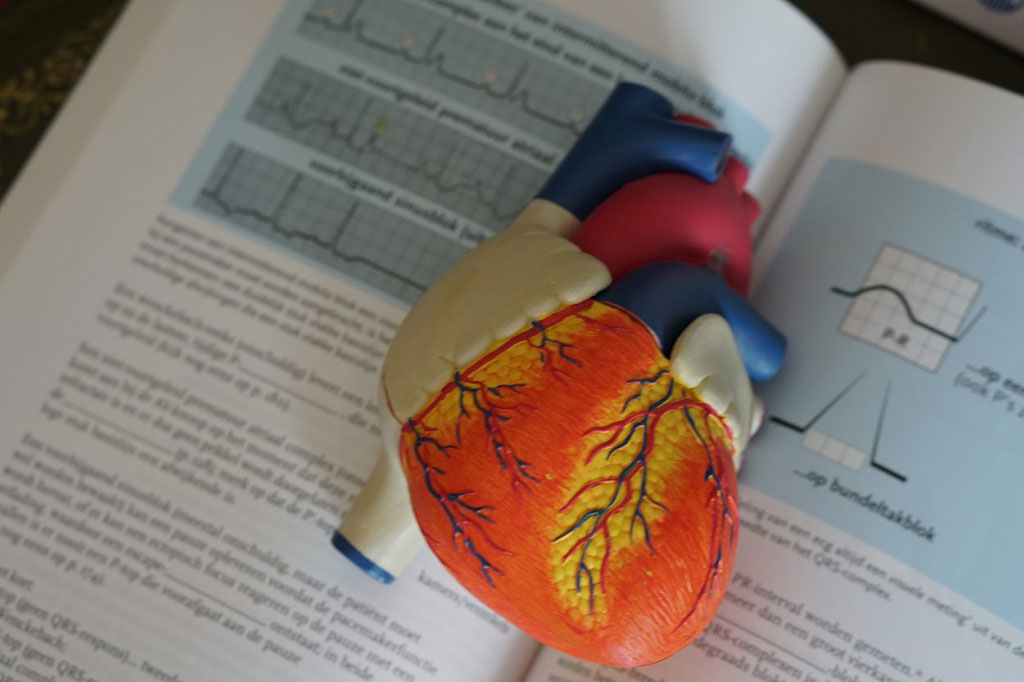AI Predicts Cardiovascular Disease Before Patient Becomes Aware of Underlying Condition
|
By HospiMedica International staff writers Posted on 24 Jan 2022 |

For the first time ever, scientists have shown that artificial intelligence (AI) could lead to better ways to predict the onset and course of cardiovascular disease.
A new AI-based system developed by scientists at University of Utah Health (Salt Lake City, Utah, USA) mines Electronic Health Records (EHRs) and assesses the combined effects of various risk factors to better predict the onset and outcomes of heart disease. The researchers developed unique computational tools to precisely measure the synergistic effects of existing medical conditions on the heart and blood vessels.
The researchers say this comprehensive approach could help physicians foresee, prevent, or treat serious heart problems, perhaps even before a patient is aware of the underlying condition. Although the study only focused on cardiovascular disease, the researchers believe it could have far broader implications. In fact, they suggest that these findings could eventually lead to a new era of personalized, preventive medicine. Doctors would proactively contact patients to alert them to potential ailments and what can be done to alleviate the problem.
Current methods for calculating the combined effects of various risk factors - such as demographics and medical history - on cardiovascular disease are often imprecise and subjective. As a result, these methods fail to identify certain interactions that could have profound effects on the health of the heart and blood vessels. To more accurately measure how these interactions, also known as comorbidities, influence health, the researchers used machine learning software to sort through more than 1.6 million EHRs after names and other identifying information were deleted.
These electronic records, which document everything that happens to a patient, including lab tests, diagnoses, medication usage, and medical procedures, helped the researchers identify the comorbidities most likely to aggravate a particular medical condition such as cardiovascular disease. In their current study, the researchers used a form of AI called probabilistic graphical networks (PGM) to calculate how any combination of these comorbidities could influence the risks associated with heart transplants, congenital heart disease, or sinoatrial node dysfunction (SND, a disruption or failure of the heart’s natural pacemaker).
Among adults, the researchers found that individuals who had a prior diagnosis of cardiomyopathy (disease of the heart muscle) were at 86 times higher risk of needing a heart transplant than those who didn’t. They also found that those who had viral myocarditis had about a 60 times higher risk of requiring a heart transplant. In addition the usage of milrinone, a vasodilating drug used to treat heart failure, pushed the transplant risk 175 times. This was the strongest individual predictor of heart transplant. In some instances, the combined risk was even greater. For instance, among patients who had cardiomyopathy and were taking milrinone, the risk of needing a heart transplant was 405 times higher than it was for those whose hearts were healthier.
Comorbidities had a significantly different influence on the transplant risk among children, according to the researchers. Overall, the risk of pediatric heart transplant ranged from 17 to 102 times higher than children who didn’t have pre-existing heart conditions, depending on the underlying diagnosis. The researchers also examined influences that a mother’s health during pregnancy had on her children. Women who had high blood pressure during pregnancy were about twice as likely to give birth to infants who had congenital heart and circulatory problems. Children with Down syndrome had about three times greater risk of having a heart anomaly. Infants who had Fontan surgery, a procedure that corrects a congenital blood flow defect in the heart, were about 20 times more likely to develop SND heart rate dysfunction than those who didn’t need the surgery. The researchers also detected important demographic differences. For instance, a Hispanic patient with atrial fibrillation (rapid heartbeat) had twice the risk of SND compared with Blacks and Whites, who had similar medical histories.
“We can turn to AI to help refine the risk for virtually every medical diagnosis,” said Martin Tristani-Firouzi, M.D. the study’s corresponding author and a pediatric cardiologist at U of U Health. “The risk of cancer, the risk of thyroid surgery, the risk of diabetes—any medical term you can imagine.”
“This novel technology demonstrates that we can estimate the risk for medical complications with precision and can even determine medicines that are better for individual patients,” said Josh Bonkowsky, M.D. Ph.D., Director of the Primary Children’s Center for Personalized Medicine, who believes this research could lead to development of a practical clinical tool for patient care.
Related Links:
University of Utah Health
Latest Patient Care News
- Portable Biosensor Platform to Reduce Hospital-Acquired Infections
- First-Of-Its-Kind Portable Germicidal Light Technology Disinfects High-Touch Clinical Surfaces in Seconds
- Surgical Capacity Optimization Solution Helps Hospitals Boost OR Utilization

- Game-Changing Innovation in Surgical Instrument Sterilization Significantly Improves OR Throughput
- Next Gen ICU Bed to Help Address Complex Critical Care Needs
- Groundbreaking AI-Powered UV-C Disinfection Technology Redefines Infection Control Landscape
- Clean Hospitals Can Reduce Antibiotic Resistance, Save Lives
- Smart Hospital Beds Improve Accuracy of Medical Diagnosis
- New Fast Endoscope Drying System Improves Productivity and Traceability
- World’s First Automated Endoscope Cleaner Fights Antimicrobial Resistance
- Portable High-Capacity Digital Stretcher Scales Provide Precision Weighing for Patients in ER
- Portable Clinical Scale with Remote Indicator Allows for Flexible Patient Weighing Use
- Innovative and Highly Customizable Medical Carts Offer Unlimited Configuration Possibilities
- Biomolecular Wound Healing Film Adheres to Sensitive Tissue and Releases Active Ingredients
- Wearable Health Tech Could Measure Gases Released From Skin to Monitor Metabolic Diseases
- Wearable Cardioverter Defibrillator System Protects Patients at Risk of Sudden Cardiac Arrest
Channels
Critical Care
view channel
Ingestible Smart Capsule for Chemical Sensing in the Gut Moves Closer to Market
Intestinal gases are associated with several health conditions, including colon cancer, irritable bowel syndrome, and inflammatory bowel disease, and they have the potential to serve as crucial biomarkers... Read moreNovel Cannula Delivery System Enables Targeted Delivery of Imaging Agents and Drugs
Multiphoton microscopy has become an invaluable tool in neuroscience, allowing researchers to observe brain activity in real time with high-resolution imaging. A crucial aspect of many multiphoton microscopy... Read more
Novel Intrabronchial Method Delivers Cell Therapies in Critically Ill Patients on External Lung Support
Until now, administering cell therapies to patients on extracorporeal membrane oxygenation (ECMO)—a life-support system typically used for severe lung failure—has been nearly impossible.... Read moreSurgical Techniques
view channel
Pioneering Sutureless Coronary Bypass Technology to Eliminate Open-Chest Procedures
In patients with coronary artery disease, certain blood vessels may be narrowed or blocked, requiring a stent or a bypass (also known as diversion) to restore blood flow to the heart. Bypass surgeries... Read more
Intravascular Imaging for Guiding Stent Implantation Ensures Safer Stenting Procedures
Patients diagnosed with coronary artery disease, which is caused by plaque accumulation within the arteries leading to chest pain, shortness of breath, and potential heart attacks, frequently undergo percutaneous... Read more
World's First AI Surgical Guidance Platform Allows Surgeons to Measure Success in Real-Time
Surgeons have always faced challenges in measuring their progress toward surgical goals during procedures. Traditionally, obtaining measurements required stepping out of the sterile environment to perform... Read moreHealth IT
view channel
Printable Molecule-Selective Nanoparticles Enable Mass Production of Wearable Biosensors
The future of medicine is likely to focus on the personalization of healthcare—understanding exactly what an individual requires and delivering the appropriate combination of nutrients, metabolites, and... Read more
Smartwatches Could Detect Congestive Heart Failure
Diagnosing congestive heart failure (CHF) typically requires expensive and time-consuming imaging techniques like echocardiography, also known as cardiac ultrasound. Previously, detecting CHF by analyzing... Read moreBusiness
view channel
Expanded Collaboration to Transform OR Technology Through AI and Automation
The expansion of an existing collaboration between three leading companies aims to develop artificial intelligence (AI)-driven solutions for smart operating rooms with sophisticated monitoring and automation.... Read more

















